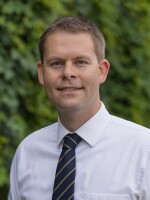Sex. That little three-letter word strikes fear in many parents’ hearts.
Psychologist Wes Crenshaw told “St. Louis on the Air” host Don Marsh on Monday that the biggest mistake parents make when trying to talk to their kids about sex is “freaking out.”
“Parents just cannot afford to think their kids are the least bit naïve. Kids are tied into the internet and to each other. They know way too much nowadays to take simple answers,” Crenshaw said. Rather than a one-time conversation, talking about sex and sex education is an almost endless conversation, he said.
Crenshaw has launched a Kickstarter campaign to publish his next book on the subject, “Consent-Based Sex Education: Parenting Teens in an Internet Age.”
Crenshaw said most reliable research indicates that 95 percent of today’s living adults had premarital sex. Nearly half of all teens have vaginal sex by age 17, and 75 percent of teens have it by age 19.
Talking to kids
“There’s nothing on Earth more awkward than ‘the talk,’” said Crenshaw. He said that kind of language is from 1984 and if parents don’t establish an ability to talk openly with their children from an early age, the topic becomes a huge deal at a time when kids are turned off to anything parents say.
“We have all sorts of sexual information pouring over the dam and we have to get ahead of it,” Crenshaw said.
Crenshaw said parents need to know what language teens are using. “Most kids know what it means to be pansexual. So if parents don’t know that kind of language, if they’re kind of back on a 1994 language, it’s hard to really communicate,” he said.
Pansexuality refers to people who are capable of attraction to others regardless of their gender identity or biological sex.
We have all sorts of sexual information pouring over the dam and we have to get ahead of it. - Dr. Wes Crenshaw
Crenshaw said parents don’t need to condone sexual activity but they do need to be able to talk about it. “The very best way that you can get your child to go have sex is to forbid them from doing it,” Crenshaw said.
Some people have religious objections to certain sex education approaches. Crenshaw said having a conversation about ethics is different than having one about morality, which is based on religious concepts. “There’s such a narrow margin between moralizing — telling someone they’re wrong for what they believe — and posing ‘have you thought this through and have you considered what might be the outcome,’” Crenshaw said.
Part of the ethical conversation, Crenshaw said, is about providing information about risks and potential consequences to sexual activity. On one hand, Crenshaw said the teen pregnancy rate has decreased, but on the other, the threat of sexually transmitted infections is present. “Kids are not very sensible about STIs right now,” Crenshaw said.
Late last year, a federal report showed that the city of St. Louis had the highest rate of chlamydia and the second-highest rate of gonorrhea infections among major U.S. cities in 2013.
Seeking online information
There are a tremendous number of online resources, Crenshaw said. Planned Parenthood, for example, has some good information but it and some other websites carry political baggage, he said.
Crenshaw mentioned two other sex education approaches.
Our Whole Lives is an approach to sex education that was developed by the Unitarian Church and the United Church of Christ in the early 2000s. That approach advocates a holistic view of sexual health and behavior that’s accurate and age appropriate.
The other website, Scarleteen.com, is one that teens use, Crenshaw said. “It is very frank and honest, and responsible too,” he said.
“St. Louis on the Air” discusses issues and concerns facing the St. Louis area. The show is produced by Mary Edwards and Alex Heuer and hosted by veteran journalist Don Marsh. Follow us on Twitter: @STLonAir.




